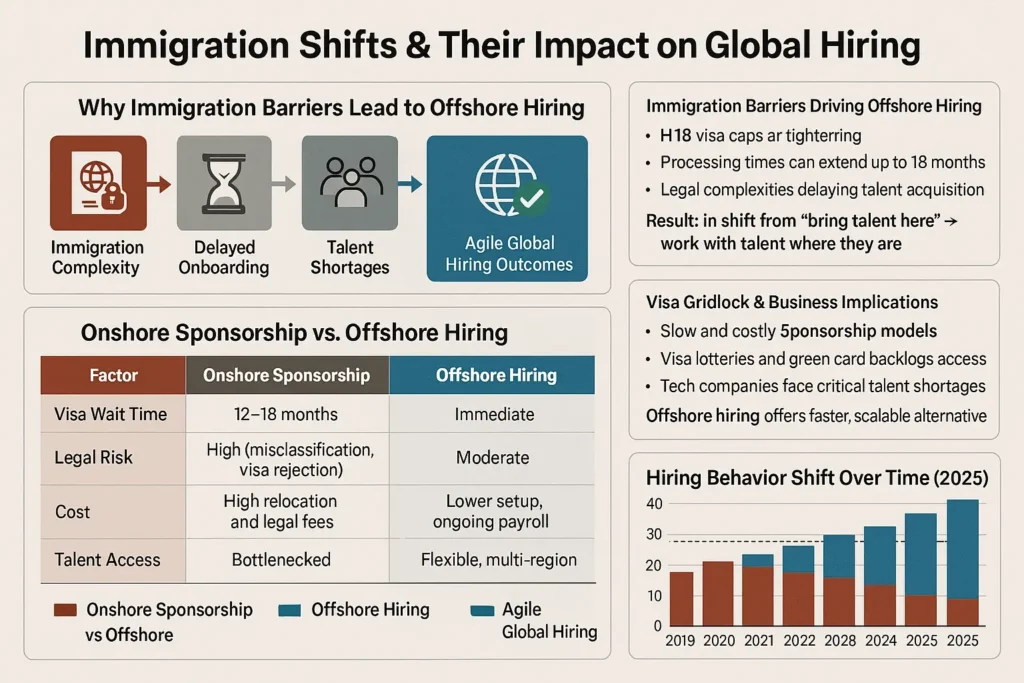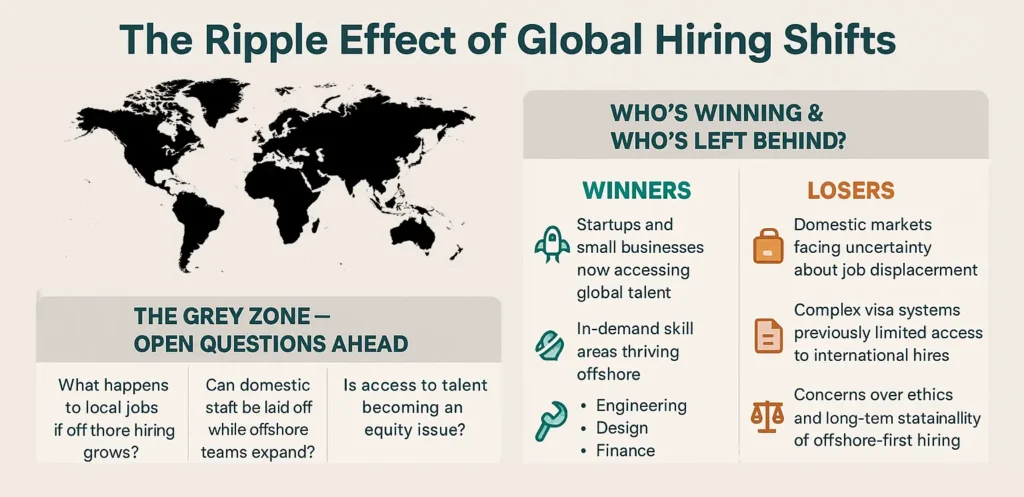Offshoring isn’t just about cost savings anymore. It’s about real business solutions — and has nothing to do with “pajamas, dogs and work on the couch” as some have suggested. What began in software engineering is beginning to extend to finance, compliance, marketing, and, yes, customer success.
India, Eastern Europe and LATAM teams enable startup and enterprise product development, marketing and operations.
Today’s most successful companies are building real global teams — not because they want to, but because they have to.








